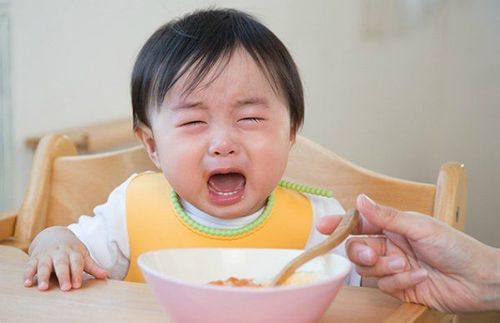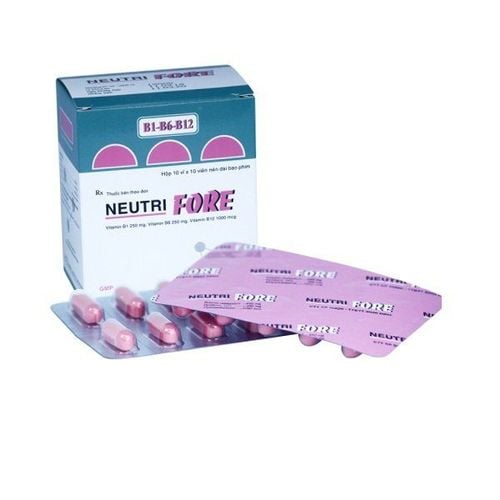This is an automatically translated article.
The article was professionally consulted by Doctor Bui Thi Ha - Neonatologist - Pediatrics - Neonatology Department - Vinmec Ha Long International General HospitalSelenium is one of the minerals that is extremely important for many aspects of a child's health. Selenium deficiency in children can cause certain problems, such as fatigue, stress, susceptibility to illness, loss of skin pigmentation, and increased risk of cancer and infections.
1. How important is selenium for children's health?
Selenium is a mineral that plays an important role in many aspects of the health of both adults and children. According to research, selenium contributes to at least 13 proteins, divided into 2 main groups, including thioredoxin reductase and glutathione peroxidase.For the human body, selenium is known to be a substance similar to an antioxidant, which helps to slow down the aging process of the body. In addition, it also helps prevent some serious diseases, such as cancer.
For young children, selenium offers the following outstanding health benefits:
1.1 Supports growth and development in young children In fact, selenium is an important factor that helps promote metabolism iodine takes place. Selenium deficiency (or selenium deficiency) in children can interfere with this process. In addition, lower-than-normal levels of the trace mineral selenium are also a warning sign that a child has a goiter. On the other hand, selenium also acts as an enzyme, effectively supporting the production of hormones in the thyroid gland. This has shown that selenium has a significant influence on the development of young children. If the body is deficient in selenium, the child may be stunted in growth and development and susceptible to certain diseases.
1.2 Strengthen children's immune system Selenium is considered a core ingredient in the enzyme glutathione peroxidase - an enzyme that directly affects the formation and development of white blood cells. At the same time, it also has a great impact on the body's immune system. Selenium deficiency in children can have a number of adverse effects on the function of the immune system, reducing the ability to fight infections and the activities of white blood cells and the thymus.
If enough selenium is given to children, it will help strengthen the child's resistance, prevent the risk of bacterial or viral infections harmful to the body. Besides, selenium deficiency can reduce the ability to restore the structure of DNA and limit the body's purification in children.

Triệu chứng thiếu selen điển hình là trẻ mệt mỏi, hay ốm vặt
2. What problems can children have with selenium deficiency?
"So what medical conditions does selenium deficiency cause in children?" In fact, when the body is deficient in selenium (or selenium deficiency), the baby can suffer from the following problems:2.1 Hair loss Selenium is known for its function in helping to convert the thyroid hormone T4 into T3 (a form of it). works better). Selenium deficiency in children can cause symptoms of hypothyroidism, which include hair loss.
2.2 Fatigue This is one of the most common symptoms of selenium deficiency in children. The cause of fatigue in young children may be due to a lack of selenium in the body, causing the thyroid gland to be significantly affected.
To help children improve this condition, you should give your baby a full consumption of foods that contain protein, carbohydrates, iron, vitamin D and fats.
2.3 Wounds susceptible to infection Selenium deficiency in children can lead to a weakened immune system. This also contributes to reducing the body's defense against foreign pathogens, especially cancer.
2.4 Causes Depigmentation of Children's Skin Selenium deficiency can have adverse effects on children's skin, such as loss of skin pigmentation. Besides, a severe deficiency of selenium in children can also cause some dangerous heart disorders.
However, these problems are rare because selenium is often found in many foods and is easy to supplement.
2.5 Children get sick easily If your child has been fully vaccinated and taken steps to ensure hygiene but he is still often sick, this is most likely because he is deficient in selenium. When the body doesn't produce enough glutathione peroxidase, a child's immune system becomes less effective and makes him more susceptible to illness.
2.6 Stressing Children Selenium is known for its similar role as a powerful antioxidant. It helps to reverse oxidative stress that causes damage to cells in the body. Therefore, you need to get enough selenium for your baby through their daily diet to ensure that they can receive these amazing health benefits.
2.7 Keshan disease in children This disease usually occurs when the child's body is deficient in selenium. Symptoms of Keshan disease will have manifestations of cardiomyopathy, which is usually divided into 4 main levels: Latent, chronic, subacute, and acute.

Thiếu selen gây ra nhiều vấn đề ở trẻ
3. Ways to help overcome selenium deficiency in children
Symptoms of selenium deficiency in children such as fatigue, stress, loss of appetite, and easy illness make parents extremely worried and do not know how to overcome them. To supplement selenium for babies, parents can refer to using functional foods of natural origin, which are safe, benign and do not cause harm to the children's mucous membranes.4. Selenium toxicity in children
Although selenium supplementation for children is important, at high doses (>900 mcg/day) this nutrient can cause selenium toxicity.The main warning signs of selenium toxicity in children usually include: Nausea, diarrhea, irritability, loss of appetite, abnormal nails, hair loss, peripheral neuropathy, dermatitis or bad breath garlic. To treat selenium toxicity, you should reduce your baby's dose of this mineral.
To improve selenium deficiency and prevent the risk of this mineral toxicity in children, you should choose selenium supplements with levels recommended by nutritionists. The supplement of selenium with a sufficient dose will support digestion, strengthen resistance, provide essential amino acids, prevent infections and solve anorexia or anorexia in children.
Besides, parents also need to supplement their children with essential micro-minerals such as zinc, lysine, chromium, vitamin B1, ... to fully meet the nutritional needs of children. The addition of these essential vitamins also supports digestion, enhances nutrient absorption, improves anorexia, and helps children eat well. Parents can simultaneously apply dietary supplements and functional foods derived from nature for easy absorption
For more knowledge of healthy child rearing, parents should actively update Update useful medical information on Vinmec.com website and immediately contact doctors and experts at Vinmec when you need support.














